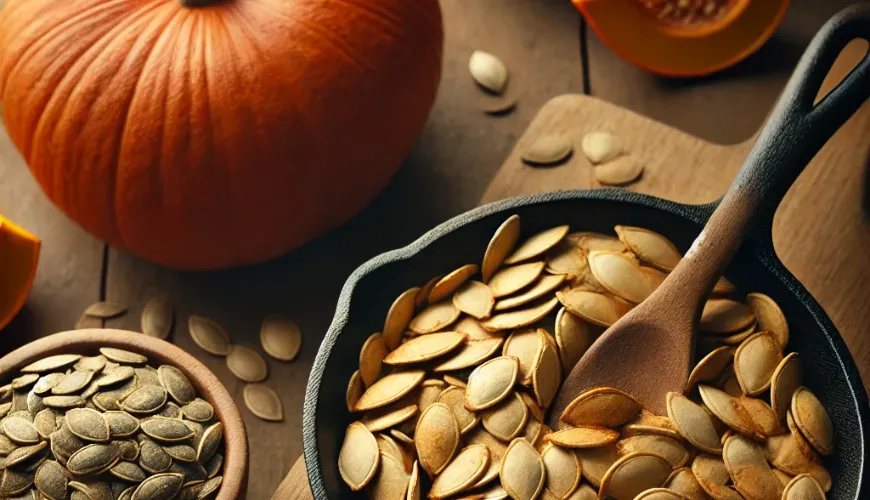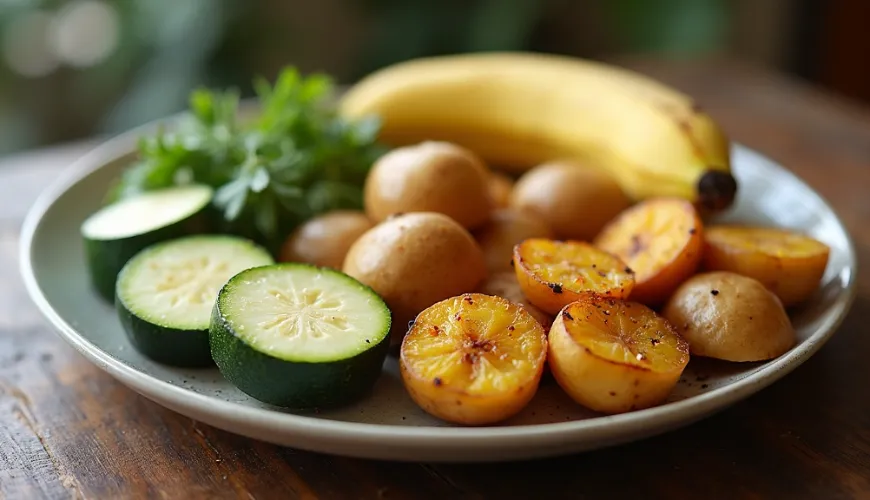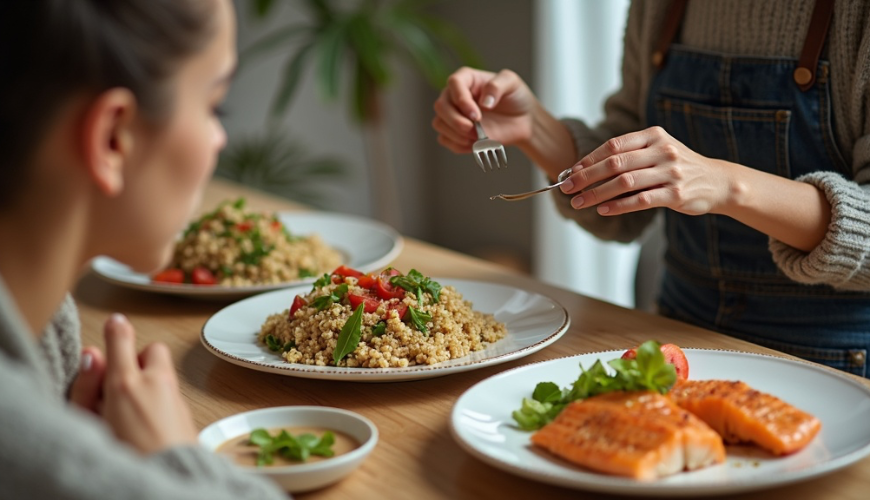
Non-Smoking Foods in the Kitchen for a Healthier Lifestyle

Non-Bloating Foods - The Key to Peaceful Digestion and Abdominal Comfort
Bloating. The unpleasant feeling of fullness, pressure, and a swollen abdomen that can trouble a person immediately after eating or even hours later. Although digestion is not often talked about publicly, it is an issue that affects a significant portion of the population—from infants to seniors. Often, a small adjustment to the diet and the inclusion of non-bloating foods can significantly improve digestion.
But what does it mean for a food to be "non-bloating"? Simply put, it refers to foods that do not cause excessive gas production in the intestines. These foods typically contain easily digestible sugars, little fiber, and minimal components that could ferment or be difficult to break down. We will focus on these foods today, not only from a health perspective but also with specific tips on how to incorporate them into everyday cooking.
Why Do We Bloat?
To understand why some foods cause more bloating than others, we need to briefly look at what happens in our digestive tract. When we eat, food breakdown begins in the mouth. It continues through the stomach to the small intestine, where most nutrients are absorbed. What remains travels to the large intestine, where bacteria start to ferment the undigested leftovers—breaking them down, often resulting in gas production.
Some foods, such as legumes, cruciferous vegetables (cauliflower, broccoli, cabbage), or whole-grain products, contain components that are difficult to digest. These often include oligosaccharides, fiber, or sulfur compounds. These substances are not harmful—on the contrary, for example, fiber is beneficial for gut health—but they can trigger bloating in more sensitive individuals.
Which Foods Are Non-Bloating?
The good news is that there are plenty of ingredients that are easy to digest and do not cause uncomfortable bloating. These are usually simply prepared dishes with lower fiber, fat, and fermentable sugar content. The most commonly recommended non-bloating foods include:
- Rice – especially white rice is very gentle on the digestive tract, not causing fermentation or bloating.
- Potatoes – boiled or baked without fat are light, nutritious, and safe for sensitive stomachs.
- Carrots and pumpkins – cooked root vegetables are mild, sweet, and very digestible.
- Zucchini – a popular summer vegetable that can be used in dozens of ways and is non-bloating.
- Bananas – ripe bananas are rich in potassium and gentle on the intestines.
- Chicken and turkey meat without skin – lean meat is a source of quality protein and does not burden digestion.
- Eggs – boiled or scrambled, they are a quick and non-bloating protein source.
- White bread and pasta from white flour – although whole grain products have more fiber, the white variant is more advantageous for sensitive digestion.
- Vegetable broths – ideal as a meal base or as a light dish during digestive troubles.
All these foods have in common that they are simple, minimally processed, and contain no components that the body has to process complexly. If you also pay attention to proper food combinations and avoid overeating, your digestion can significantly improve.
A Practical Example from Everyday Life
Let's imagine a woman named Petra who works full-time in an office and has long been troubled by digestive issues—especially bloating after lunch. She tried various diets, limiting gluten, milk, and sugar, but without much effect. Until her nutritionist recommended focusing on foods that do not cause gas. Petra started eating rice with boiled vegetables and chicken for lunch, leaving out lentils and cauliflower that she used to love but had trouble digesting. After just a week, she noticed feeling lighter and not having stomach pain after meals. And although she initially feared missing variety, she gradually discovered new ways to prepare meals that she enjoys and that benefit her body.
How to Adjust Your Diet if Bloating Bothers You?
There is no need to radically change your entire diet. Sometimes a small adjustment is enough, such as replacing broccoli with steamed zucchini or substituting beans with chicken. It's important to listen to your body and observe which foods make you feel good. Every organism is different—what is non-bloating for one person may be problematic for another.
Attention should also be paid to the method of preparation. For example, fried foods or heavy sauces can make even otherwise light ingredients hard to digest. Steaming, stewing, or baking without fat are the gentlest preparation methods. Additionally, the speed of consumption matters—eating in a hurry and gulping down food leads to swallowing more air, which can worsen bloating.
When Bloating Is Caused by More Than Just Food
Interestingly, bloating may not be solely caused by diet. Factors such as stress, emotional strain, lack of physical activity, or poor eating habits also play a role. "Our intestines have their own nervous system, sometimes referred to as the second brain. And when we're stressed, the intestines feel it just like our head does," says renowned Czech gastroenterologist MUDr. Pavel Kohout.
This means that mental well-being and sleep have a greater impact on digestion than we might expect. Regular yoga, meditation, or simply mindful breathing can sometimes help.
Non-Bloating Foods and Children
Children's bellies are particularly sensitive. Infants suffer from colic, toddlers wake up with stomach pain, and older children often refuse vegetables because it "hurts their stomach." Even for them, there are non-bloating options—such as boiled carrots, pumpkin, mashed potatoes, or chicken broth. It's important not to force children to eat heavy meals and to observe what makes them feel good. Less is sometimes more—even for small diners.
When Is Bloating a Signal to See a Doctor?
Occasional bloating is a normal part of life. However, if additional symptoms occur—severe abdominal pain, weight loss, chronic diarrhea, or blood in the stool—it's time to seek a professional. These symptoms may indicate gluten intolerance (celiac disease), lactose intolerance, inflammatory bowel disease, or irritable bowel syndrome.
In some cases, short-term adherence to a so-called FODMAP diet, which eliminates fermentable sugars, can help. This diet should always be supervised by a professional, ideally a nutrition therapist or gastroenterologist.
In today's world, where there are countless foods and dietary trends on the market, it's easy to get lost in what is actually "good" and what is "bad." Still, it makes sense to return to simplicity—to home cooking, seasonal ingredients, and respect for one's own body. Non-bloating foods are not the privilege of the sick. On the contrary, they are often the key to better energy, better sleep, and overall well-being. Because there is nothing pleasant about not feeling well after a meal—when food should be a source of joy, not suffering.

